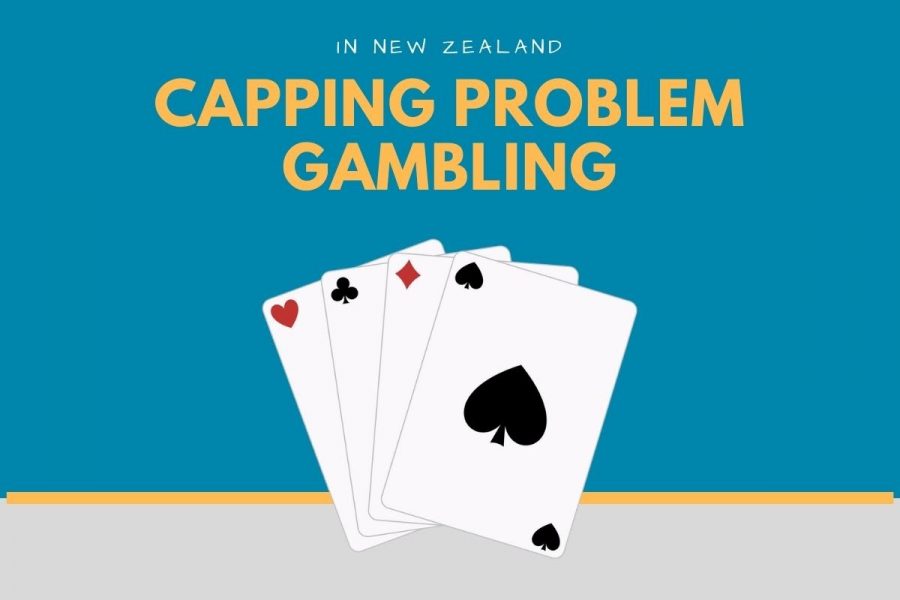Capping Problem Gambling in New Zealand: Report Summary
May 24, 2021
Problem gambling among New Zealanders has been known as a serious issue since the 2000s. This country mainly recognised for imposing severe regulations regarding the gambling sector has addressed this significant problem by establishing different gambling organisations and policies. In New Zealand, gambling regulations have been made under the Gambling Act 2003 and the Remote Interactive Gambling is prohibited under this Act. Gambling is controlled by the Department of Internal Affairs and all public gambling is expected to return benefits to the community.
The non-casino electronic gaming machines (EGMs) which are defined as Class 4 gambling contributes the most harm in Aotearoa. In fact, around 11% of the Kiwis are affecting by gambling harm each year. As capping problem gambling has been the country’s strategy, here is the report summary that illustrates three effective forms of policy intervention in reducing Class 4 venues and EGMs.
Total Limits on the Number of EGMs and Venues
Many territorial authorities (TAs) have applied strict regulations with regards the gambling including the caps on the number of Electronic gambling machines (EGMs). These EGMs in the gambling venues and online portals such as CasinoDeps.co.nz have been limited because they are associated with higher risks compared to other types of gambling activities. From 2010 to 2018, the EGMs have shown a decrease of 28.7% with annual EGMs and venues per 100,000.
The Gambling Act 2003 imposes a set of basic restrictions on the number of EGMs per Class 4 venue. All forms of Class 4 gambling policy interventions are proved to be effective in reducing EGMs and gambling venues. The reduction in access to these forms of gambling is estimated to minimize gambling expenditure from these machines between 10 and 14 %. Therefore, the absolute caps are estimated to reduce the number of EGMs by 15% and the number of venues by 16.9%.
Per Capita Caps on the Number of EGMs and/or Venues
Another strategy implemented by the territorial authorities is cutting down the EGMs or Class 4 venues. Actually, the TAs remove the operating licences of those who have been uncovered serious failings. These licences lost cannot be reallocated to a new venue or used to expand existing venues. Some of them have not granted any new licences to the operators.
Between 2010 and 2016, the number of TAs established per capita caps decreased considerably. Different results are obtained regarding the impact of gambling policies on the use of intervention services. For example, a year after the implementation of per capita caps, the number of people who use the service has increased.
Sinking Lid Policies
A sinking lid regulation is the last policy applied to slowly minimize problem gambling and this country is the only jurisdiction to apply this measure. This approach prohibits transferring EGM licenses by closing the venues to permanently reduce the number of EGMs within the TAs. The number of TAs adopting this policy has grown from 2015 to 2018 with 25% to 34% respectively.
Although sinking lids and per capita caps are the stricter measures, they are shown to be the most effective system of reducing machine spending. As a matter of fact, there is a drop in machine spending of 13% for the sinking lid and 14% for the per capita cap. The TAs are also required to review their Class 4 gambling systems every three years.
Final Words
Gambling addiction is an emerging public health issue in New Zealand. As stated by the National Gambling Study of 2014, the individuals who are considered to be high risk or problem gamblers spend more on the total Class 4 gambling. That is the reason the country offers a strong study to understand the impact of local government strategy responding the gambling-related harm.
This study allows the methods to estimate the expected impacts of these strategies on the number of Class 4 venues, EGMs, and machine spending. Apart from these three policy interventions, controlling the age and gender in each TA is also an effective option to promote responsible gambling. The minimum legal age for gambling in Europe is, in general, is 18 whereas the NZ gambling age is 18 for EGMs outside and 20 for casinos. This means that the legal age for gambling varies depending on the gambling activity.














